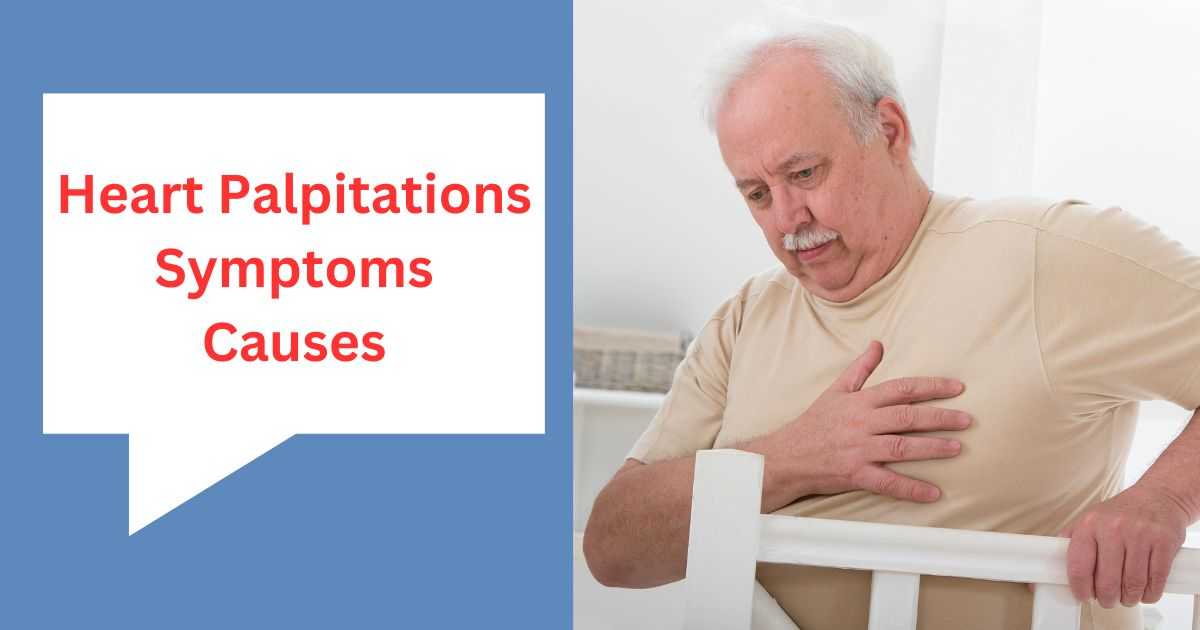Heart palpitations are a common occurrence that can cause significant concern and anxiety for those experiencing them. Defined as a feeling of fluttering, pounding, or racing in the chest, heart palpitations can vary in intensity and frequency. While they may be harmless in many cases, they can also indicate underlying health issues that require attention. Understanding the symptoms and causes of heart palpitations is essential for proper management and peace of mind.
Symptoms of Heart Palpitations
Heart palpitations often manifest as sensations of:
Fluttering or Flip-Flopping: A sensation akin to a butterfly flapping its wings or the heart doing somersaults.
Rapid heartbeat: a feeling of the heart racing or pounding in the chest.
Skipped or Extra Beats: Sensations of missed heartbeats or additional beats between regular heartbeats.
Pounding in the Chest: A strong, forceful heartbeat that feels like it’s thumping against the chest wall.
Dizziness or Lightheadedness: Some individuals may experience feelings of dizziness or lightheadedness accompanying heart palpitations.
Shortness of Breath: Difficulty breathing or a feeling of breathlessness may coincide with heart palpitations.
Chest Pain or Discomfort: While not always present, some people may experience chest pain or discomfort during palpitations.
It’s important to note that while palpitations can be unsettling, they are not always indicative of a serious underlying condition. However, if palpitations are accompanied by severe chest pain, fainting, or difficulty breathing, immediate medical attention should be sought.
Causes of Heart Palpitations
The following are the main causes of heart palpitations:
Stress and Anxiety: Emotional stress and anxiety are common triggers for heart palpitations. The body’s natural response to stress can lead to the release of adrenaline, which can cause the heart to beat faster and more forcefully. Stress-relaxing techniques like meditation and yoga would be a good option in this case. If you need formal online programs, then Ho’oponopono meditation and Shapeshifter Yoga are super cool options.
Caffeine and Stimulants: Excessive consumption of caffeine, found in coffee, tea, energy drinks, and some medications, can stimulate the heart and lead to palpitations.
Nicotine: Smoking and other forms of nicotine consumption can stimulate the heart and lead to palpitations.
Alcohol: Drinking excessive amounts of alcohol can disrupt the heart’s rhythm and lead to palpitations.
Medications: Some medications, such as certain asthma inhalers, decongestants, and thyroid medications, can cause palpitations as a side effect.
Hormonal Changes: Hormonal fluctuations, such as those experienced during menstruation, pregnancy, or menopause, can trigger palpitations in some individuals.
Underlying Heart Conditions: In some cases, palpitations may be a symptom of an underlying heart condition, such as arrhythmia, heart valve disorders, or heart muscle abnormalities.
Electrolyte Imbalance: Imbalances in electrolytes, such as potassium, magnesium, or calcium, can affect the heart’s electrical impulses and lead to palpitations.
Seeking Medical Attention
While many cases of heart palpitations are harmless and resolve on their own, it’s essential to seek medical attention if palpitations are frequent, severe, or accompanied by other concerning symptoms like fainting, severe shortness of breath, and severe dizziness. A healthcare provider can perform a thorough evaluation, which may include a physical examination, electrocardiogram (ECG), blood tests, or other diagnostic tests, to determine the underlying cause of palpitations and recommend appropriate treatment.
Final Thoughts
In conclusion, heart palpitations are a common phenomenon that can vary in intensity and frequency. While they are often benign and temporary, they can also indicate underlying health issues that require attention. Understanding the symptoms and causes of heart palpitations is crucial for proper management and peace of mind. Remember, following a healthy lifestyle and regular physical exercise are very important in maintaining our overall health which in turn can reduce the chances of heart palpitations. If you experience frequent or severe palpitations, it’s important to seek medical attention to rule out any serious underlying conditions and receive appropriate care.

